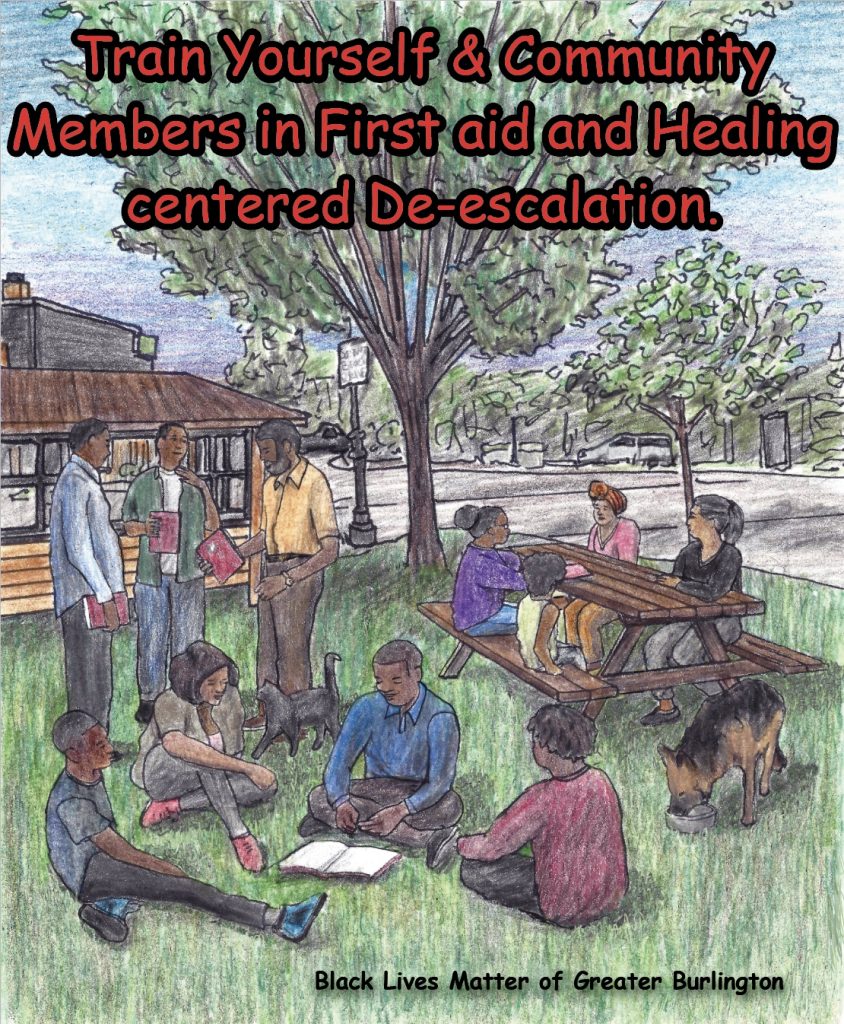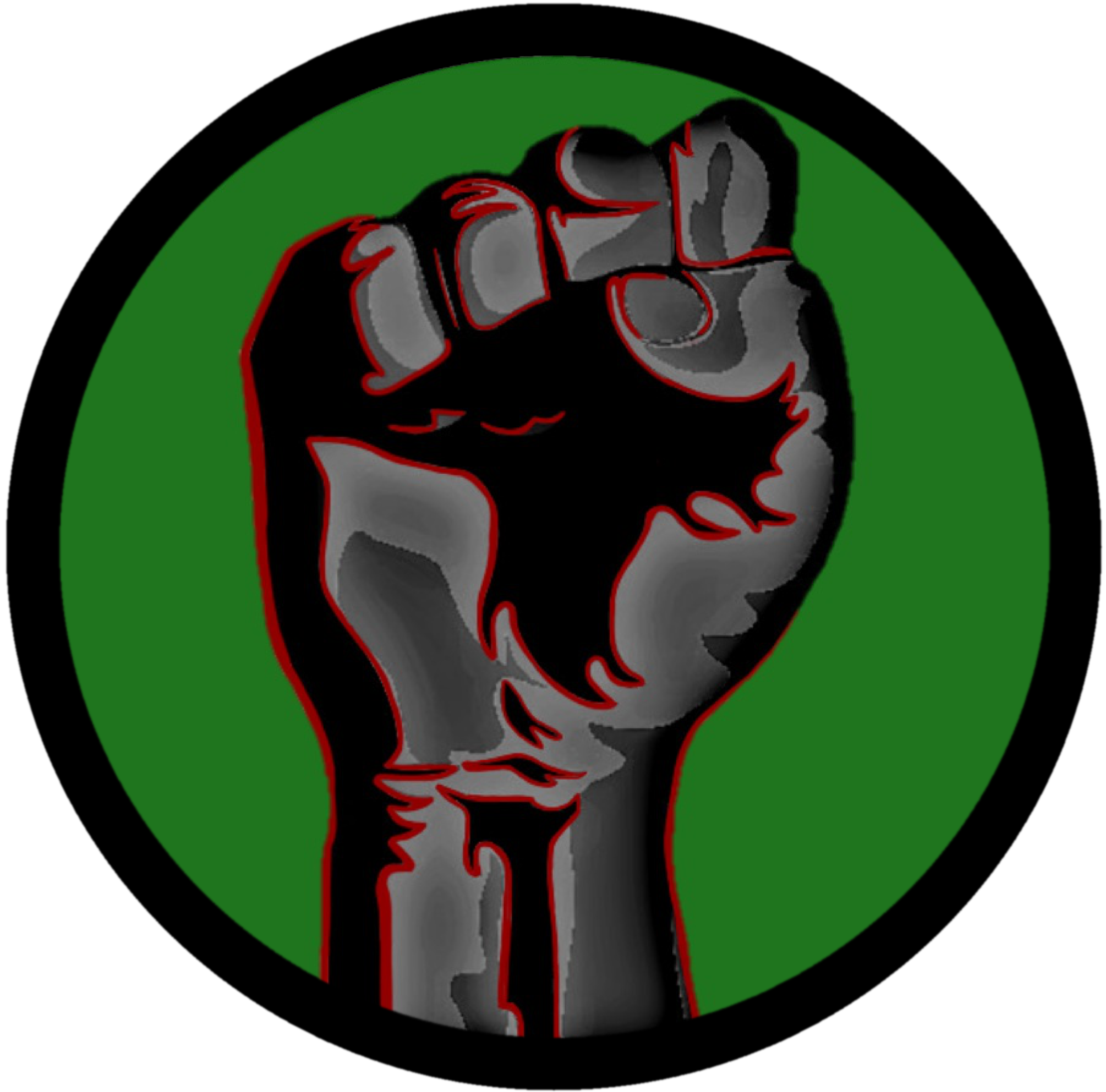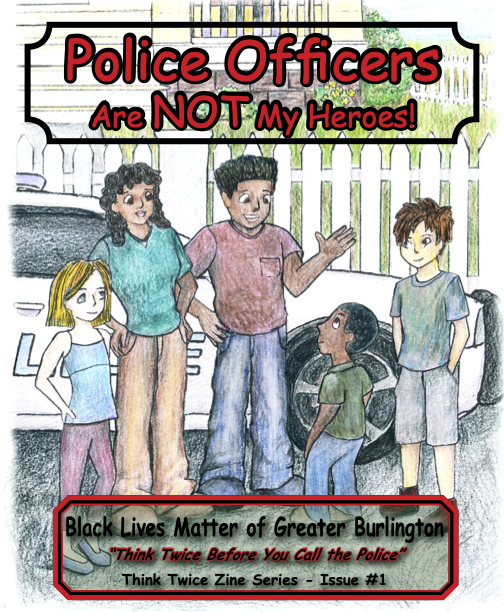
Issue #1 – Police Officers Are NOT My Heroes!
In the first months of 2020, the local police department visited a preschool classroom to teach kids about why they should be thankful for police. They were sent home with coloring booklets titled “Police Officers Are My Heroes!” We modified their booklet to illustrate the harm that policing does to our community, and what can happen if we know that we are the ones who can keep us fed, housed, and protected. Our zine is titled, “Police Officers Are NOT My Heroes!” and marks the first in a series of zines for the Think Twice Before You Call the Police campaign. All of our community pledge points can be found on the back of this first zine.
A note from the BLM of Greater Burlington Black Liberation Collective
Issue #2 – Get to Know, Connect with, & Care for Your Community.
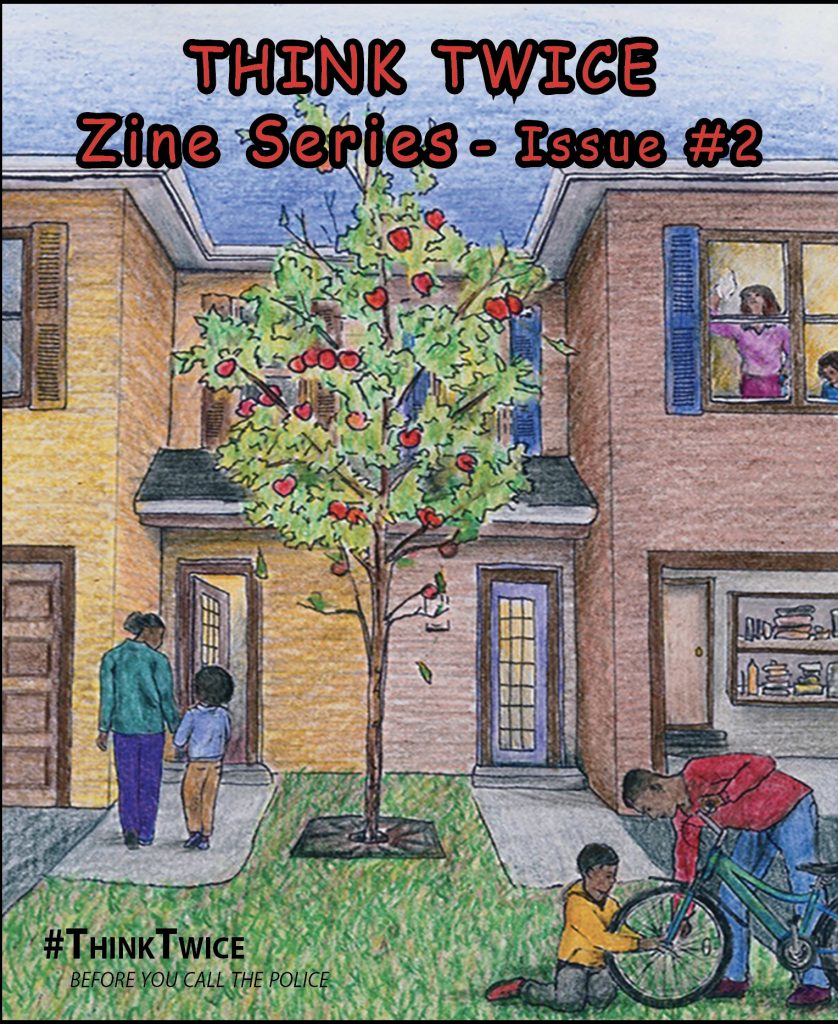
When police are called into a community, it is easy for the caller to be detached from the consequences that result. This is by design. A cultural dependence on policing and incarceration thrives upon our isolation from one another. It operates upon the general assumption that society is already structured to meet the collective needs of our communities. Policing attributes our hardships to the supposed shortcomings or wrongdoings of individual people, and its solution is to remove those people from our families and communities. This way of thinking is enforced through the propaganda of the police state, which is omnipresent and in constant production, with special attention given to the indoctrination of young people.
By making this pledge point into a coloring book, we hope to bring this cultural conversation into classrooms, dinner tables, and other intergenerational community spaces with folx most directly affected by police. The first Think Twice community pledge is foundational to all the others. When we choose to recognize security as collectivized care instead of state-sanctioned punishment, we are choosing to get to know our community members well enough to actively support each other in our unique needs, with a recognition that our liberation from oppression is bound up together. When we choose to recognize security as collectivized care instead of state-sanctioned punishment, we are choosing to get to know our community members well enough that we can actively support each other in our unique needs, with a recognition that our liberation from oppression is bound up together.
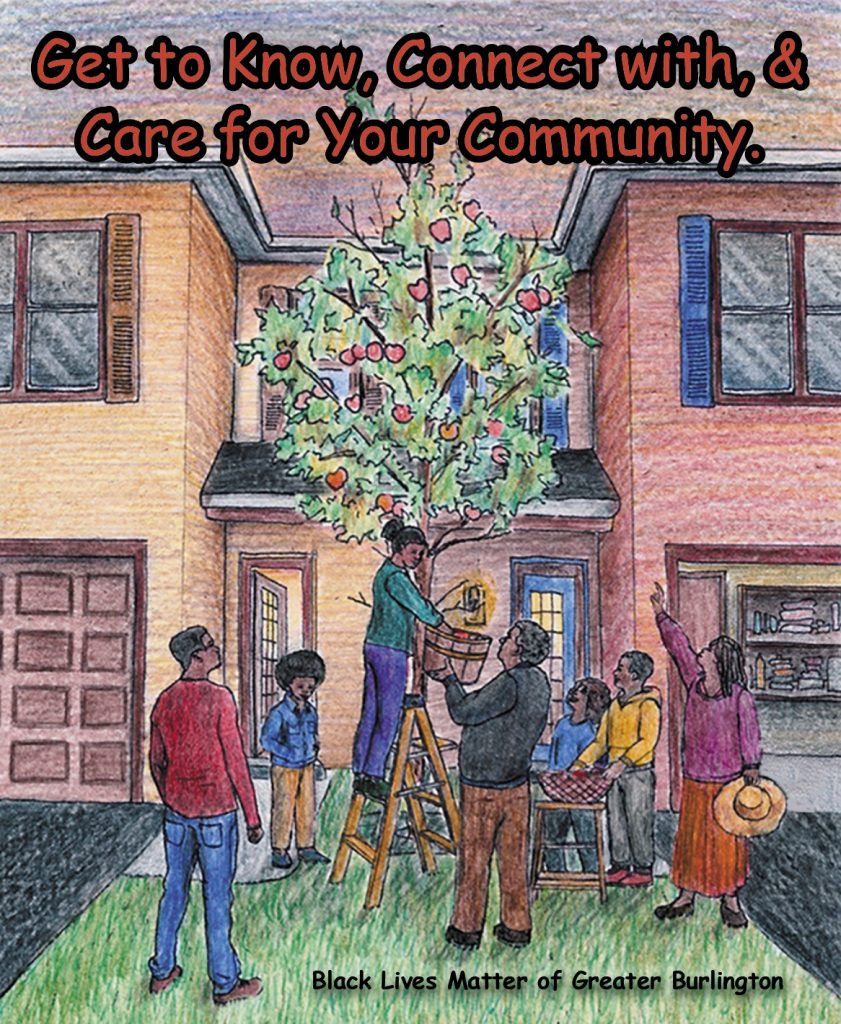
Issue #3 – Train Yourself & Community Members in First Aid and Healing Centered De-escalation.
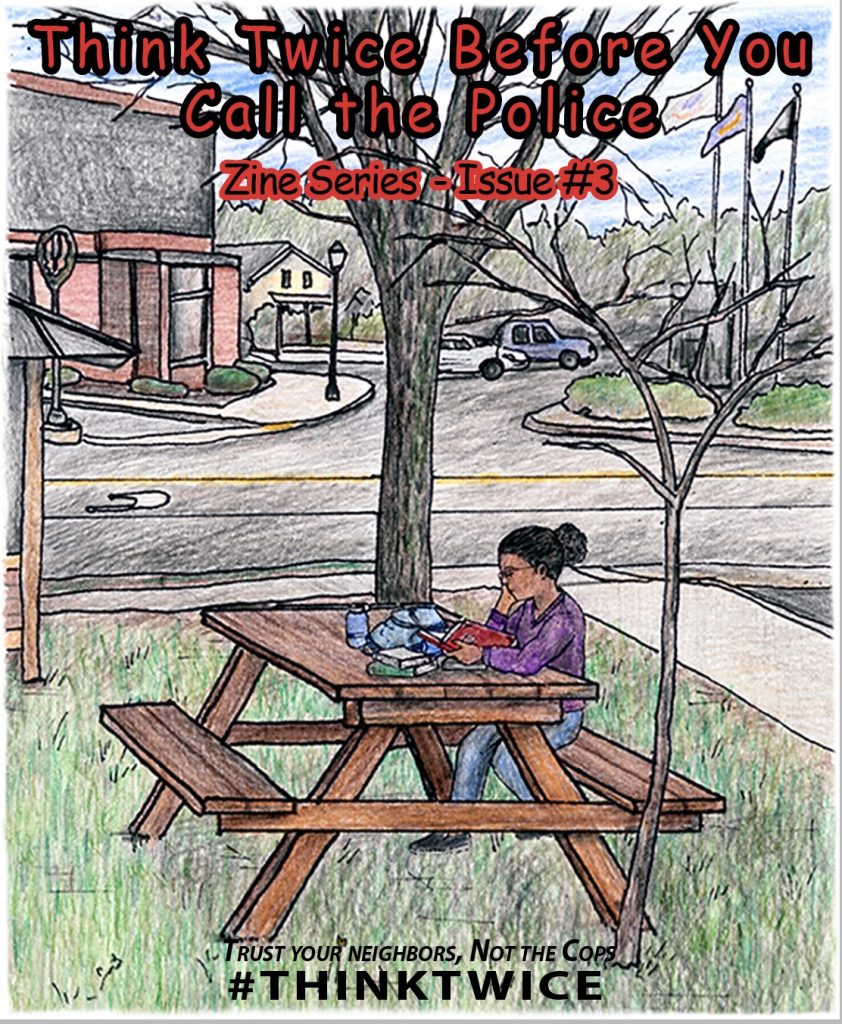
In white supremacy culture, police are the default “first responders” to be called upon when we experience harm or even sense danger. It is taught that security happens when we call on the state–not on our community members–to intervene on our behalf. When we are in trouble and call the police, we are calling an organization that does not work for the needs of the many who struggle in poverty… instead, police work for the state to enforce poverty as the status quo. When we commit to not calling the police, we are committing to engage with our communities, to communicate and understand what is needed in a way that does not replicate the old, but in a way that is creative and inspired by our connection.
When there is a separation of theory and communal practice, our knowledge of something and the practical application of that knowledge are disconnected. This means they cannot be mutually informed. We can learn about how to respond to crises in theory, but if we do not learn in community–if we do not build a context for engaging with each other, we are just guessing about what is needed and when. This coloring book attempts to give attention to what it means to make education for abolition a community experience.
